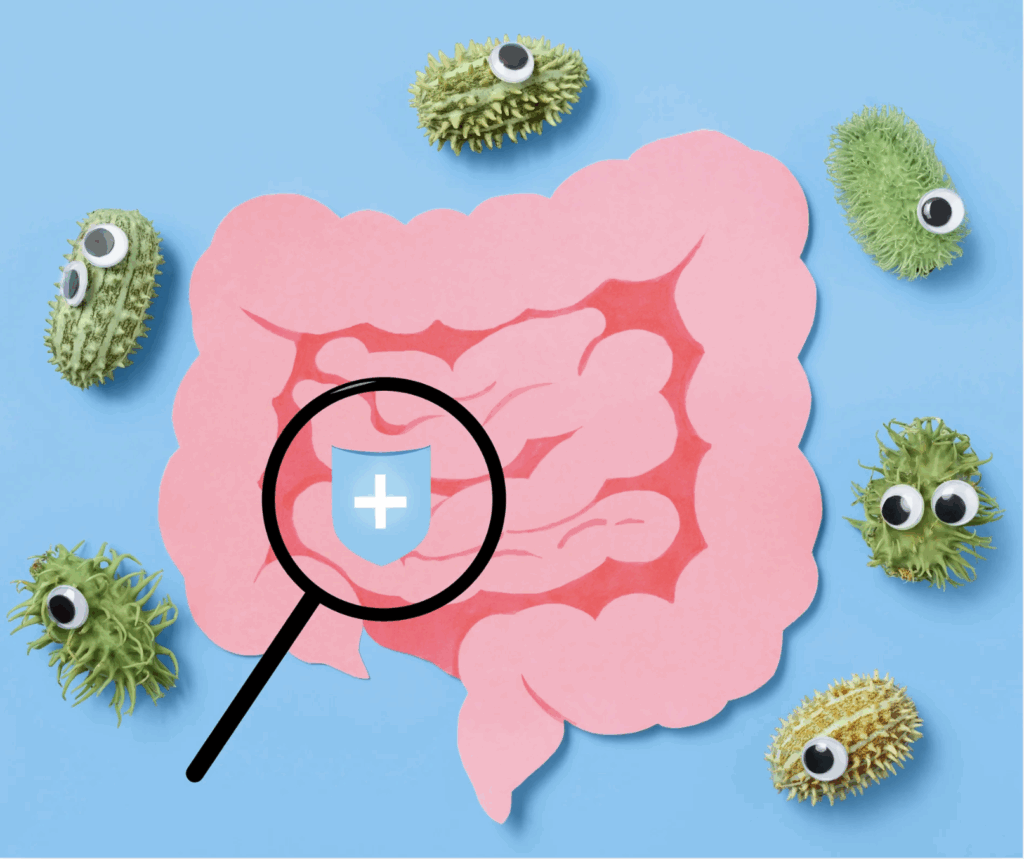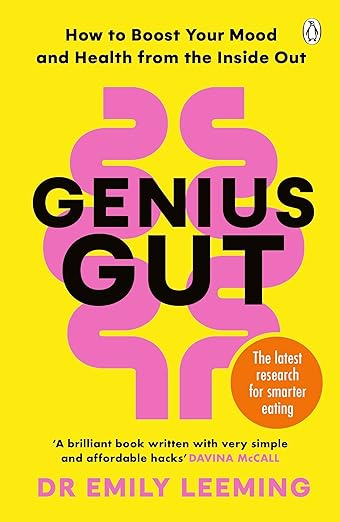Is Your Gut Trying to Tell You Something?

An imbalanced gut doesn’t just show up as gas, bloating, or constipation — although those are common signs. It can also affect your mood, energy levels, stress, focus, and cravings (especially for sugar).
Some signs your gut might need a little love:
• Feeling down or unusually anxious
• Brain fog or trouble concentrating
• Low energy or fatigue
• Increased stress or irritability
• Strong sugar cravings
When your gut is in balance, your body thanks you through:
✓ A stronger immune system
✓ A more positive, stable mood
✓ Boosted energy and sharper thinking
✓ Healthier weight management
Not to be dramatic… but having a healthy gut is literally life-changing.
Let’s take a closer look at why your gut deserves more attention — and what you can do to keep it happy.
Why Your Gut Matters
Your gut is the cornerstone of your overall well-being, doing much more than just digesting food and absorbing nutrients. It significantly impacts your immune system, mental clarity, energy levels, mood, and hosts an entire ecosystem of microbes. Your gut even communicates constantly with your brain, earning it the nickname ” the second brain” from scientists due to its extensive network of neurons—the very same kind found in your brain.
The Gut-Brain Connection
Your gut and brain are constantly sending messages to each other through a complex, two-way communication system. This is called the gut-brain axis. When your gut isn’t happy, your body tells you through your mood, sleep quality, and focus abilities.
That “gut feeling” you get? It’s very real.
Meet the Gut Microbiome
The gut microbiome refers to the trillions of microorganisms living in your digestive tract: bacteria, fungi, viruses, and archaea. Some are “good,” others not so much… but the key to a healthy gut is balance and diversity.
A thriving gut microbiome supports nearly every function in your body and brain. An imbalanced one, on the other hand, can be linked to:

• Digestive issues
• Immune dysfunction
• Mood disorders like anxiety and depression
• Weight gain and fatigue
Don’t worry, though! There is good news: one of the easiest ways to influence your gut microbiome is through the food you eat.
Let Food Be your Gut’s Best Friend
Your gut bacteria need the right fuel to thrive — and the food you eat is the most powerful tool you have to support them. Here’s how to nourish your gut from the inside out:
Fiber is key
Fuel your good gut microbes with a wide array of plant-based foods. Load up on colorful fruits and vegetables (key players include leafy greens and berries), hearty whole grains (oats, quinoa), and legumes (lentils, beans), nuts and seeds. These act as prebiotics, essential for a balanced microbiome.
Easy tip: Make half your plate vegetables.
Probiotic Powerhouses
Introduce live beneficial bacteria that help maintain the healthy bacteria in your gut with fermented foods like Greek yogurt, kefir, sauerkraut, kimchi, and kombucha.
Gut-Friendly Fats
Incorporate healthy fats from avocados, olive oil, and nuts to support gut integrity and nutrient absorption.
Quality Proteins
Opt for lean proteins from sources like wild-caught fish, organic poultry, or diverse plant proteins to provide essential building blocks for your body, including gut health.
Stay hydrated
Water helps everything move through your system more smoothly and supports digestion at every step.
Equally important for gut vitality is minimizing consumption of specific items:
Refined Sugars: These can imbalance your gut flora and promote inflammation, undermining your efforts.
Processed & Ultra-Processed Foods: Often stripped of beneficial fibers and laden with artificial ingredients, these can disrupt your gut’s delicate ecosystem.
Alcohol: Regular or excessive alcohol intake can damage the gut lining and significantly alter the microbial community.
Should You Take a Supplement?
Supplements can be helpful — but they’re not always necessary. Here’s a quick breakdown:
Probiotics (live bacteria):
If you’re generally healthy, focus on food first — especially fiber and fermented foods. Supplements aren’t a cure-all and may not be needed.
Prebiotics (food for your good bacteria):
These are generally safe, but can sometimes cause bloating or discomfort. Always consult with a dietitian or healthcare provider before starting any new supplement.
Lifestyle Tweaks That Support Gut Health
Small shifts in your daily habits can have a big impact on your gut health:
- Get enough sleep

Your gut needs rest just as much as your brain. Aim for 7–9 hours each night to help your body repair and rebalance.
- Move your body
Regular movement supports digestion and boosts circulation, which benefits your microbiome. It doesn’t have to be intense — a daily walk counts.
- Manage stress
Chronic stress can throw your gut out of balance. Mindfulness, journaling, breathing exercises, or even a few quiet minutes outside can help bring things back into sync.
Small Changes, Big Impact
The best part about caring for your gut? You don’t need to change everything at once. Start small by focusing on adding more color to your plate, getting a little more sleep, and taking time to de-stress. These tiny, consistent changes add up — and your gut (and whole body) will thank you.
If you’re unsure where to begin or have ongoing concerns, reach out to Linda, our registered dietitian, or your healthcare provider. They can help you build a plan that’s tailored to your body and your lifestyle.
For personalized guidance and support on your nutrition journey, reach out to our registered dietitian, Linda Wilcox, RDN, LD. She’s here to help you make informed, sustainable choices tailored to your unique needs.
Contact her at linda@newlife-counseling.com to schedule a consultation or ask questions.
Recommended Reading:
Genius Gut by Dr. Emily Leeming


Linda is our Registered Dietitian Nutritionist that uses a balanced approach to health and wellness, focusing on nutrition, movement, sleep, and connecting you with other appropriate health resources.
Linda understands and recognizes the courage needed to take the first step in caring for yourself and starting your own health and wellness journey. Learn more about Linda’s services like individual wellness and nutrition consultations, ministry and church wellness consultations, and group presentations here!

